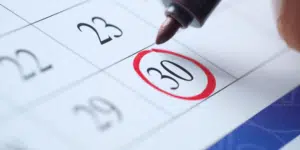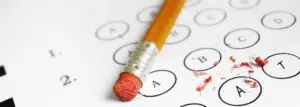In private schools today, we have zero tolerance because it seems we need zero tolerance. The most pressing practical concern after an expulsion is to determine which educational options are open to your child.
***
It happens. Students get expelled from schools every day. Expulsion is certainly not the norm, but it is a reality, in part because the reasons for expulsion are becoming increasingly numerous. Whatever the explanation is, families need to understand how to meet this challenge if they’re ever faced with a child being expelled.
Zero-Tolerance Policies
Until the late 1990s, the term “zero-tolerance” was rarely heard in an academic setting. Now, many students hear it from the time they begin kindergarten, and unfortunately, this is sometimes because they’ve faced this sanction at some point in their academic career. If your child’s school adheres to a zero-tolerance policy, you should never take it lightly.
In private schools today, we have zero tolerance because it seems we need zero tolerance. Our experience is that unacceptable student (and even teacher) behaviors are widespread. Social media and the Internet have made bullying and other forms of abuse commonplace. Academic cheating and disrespectful behaviors toward others seem to be soaring — and that’s only among the kids. What about the fourth-grade teacher who peppers her Facebook page with complaints about the spoiled students and demanding parents she deals with?
These types of behaviors create a culture in which students and adults alike become inured to seeing their peers skirt or flout codes of conduct. And for students who are caught breaking a school’s rules, the consequences can be harsh: The most severe punishment of a zero-tolerance policy is expulsion.
At times, this sanction may seem unfair, a result of a student being in the wrong place at the wrong time or just being “that unlucky one.” Is it fair? Sometimes it certainly is — and sometimes it’s not. Can thirty students cheat on the same test and only one get caught and end up expelled? Absolutely. This is, however, the reality of zero tolerance.
Reasons for Expulsion
Schools have many reasons that they expel students, from cheating to bullying to altercations with other students or teachers. They may expel students for lying, theft, or engaging in prohibited online behaviors. Students can even be expelled for actions as simple as leaving school grounds without permission or tampering with school property. In short, you name the rule, and there’s probably a school from which a kid can get expelled for violating it. After all, schools are communities, and like communities everywhere, they have codes of conduct that they expect their members to abide by.
Students who are expelled for fundamentally non-threatening but prohibited behaviors (like cheating) are rarely first-time offenders. Like other kinds of transgressions, students typically begin cheating on a small scale, such as copying a classmate’s answer on a homework assignment. When caught, teachers or administrators may initially respond with counseling, which they can then escalate to detentions or suspensions if the behavior persists. That said, schools that have zero tolerance policies always have the option of expulsion if a child breaks their rules.
Knowing How to Respond
If your child is ever threatened with expulsion, the first place to start as a parent is by asking both your child and the school exactly what happened. Parents should follow journalistic rules — the who, what, when, where, and why — to get a clear and balanced understanding of the facts. It is the rare student who willingly acknowledges that what she did is grounds for expulsion, just as it is the rare school that expels a student without real cause.
Remember, too, that being counseled out of a school or told that your child cannot return the next semester is not the same as an expulsion. Rather, these represent a school’s suggestion or insistence, for whatever reason, that a student is not the right fit for its community. Expulsion, on the other hand, carries an unmistakable message: Get out now.
A student is expelled for a reason, and barring the school making a very serious error (which is rare), parents and children would be better served by reflecting on why this experience occurred and planning how to move forward so it doesn’t happen again.
Most parents will do whatever it takes to avoid this fate for their child. Some succeed, but most do not. Of course, it’s important that parents seek a thorough explanation to determine if expulsion is warranted. That said, fighting a justified expulsion does not serve a student well. This experience is often precisely what’s needed to open a child’s eyes to the direct relationship between her actions and the consequences that will ensue.
Recovering and Moving Forward
In our experience, parents often rush to blame everyone and anyone except their child following an expulsion. This may be understandable, but it can be a recipe for even more trouble in the future. A student is expelled for a reason, and barring the school making a very serious error (which is rare), parents and children would be better served by reflecting on why this experience occurred and planning how to move forward so it doesn’t happen again.
Options Following Expulsion
The most pressing practical concern after an expulsion is to determine which educational options are open to your child. It is possible to apply to other private schools, though not all will have space or consider students who have been expelled.
Beyond mainstream institutions, there are alternative private schools that specialize in working with students who have previously experienced academic or social difficulties. In addition, there are therapeutic schools (both day and boarding) that are designed specifically for children who are diagnosed with social or emotional issues (which may underlie the original behavior that resulted in the expulsion).
Of course, families always have the choice of enrolling their child in the local public school. Kids who are expelled from private or parochial schools often do very well in mainstream public schools, and there are many excellent options throughout the country.
Finally, some families opt to homeschool their child. This does not necessarily mean mom or dad (or both) turn into teachers, though some do. That said, there are many homeschoolers who work with teachers and tutors outside of a school setting, or who enroll in online K–12 programs to continue their education. In fact, under certain circumstances, some private schools will permit a student to return after a year or more spent in a different academic environment if she can show growth from the experience.
Final Thoughts
In many ways, expulsion is the ultimate teaching tool. No matter how unfortunate it is, it is both real and unforgettable. Getting expelled from an academic institution is frequently an upsetting, stressful, and sometimes even shameful, experience for students, their parents, and even the school itself.
Yet academic expulsion pales in comparison to the consequences a student may face outside of academic institutions. If expulsion is the harshest lesson a student receives, she should consider herself lucky. And if it never happens again, she might well be among the luckiest unlucky people around.
Related Topics:
Private High School Entrance Exams: SSAT, ISEE, And HSTP
Private School Scholarships: Top Sources For Financial Aid
Second Season Private School Admissions
Private School Wait Lists: Survival Tips From A NYC School Advisor







